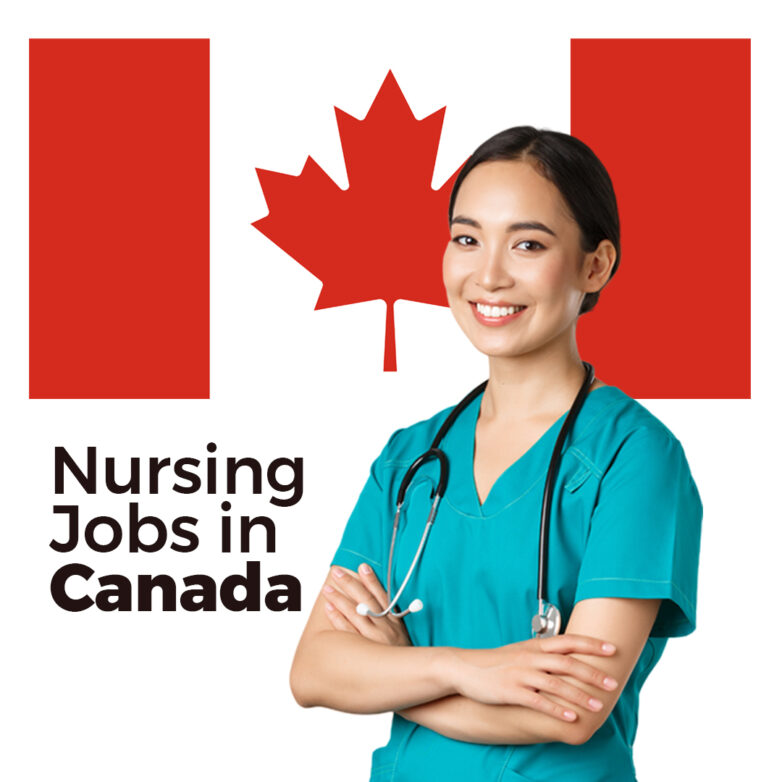
Canada is globally recognized for its high-quality healthcare system, and nursing professionals play a crucial role in delivering exceptional patient care. With a growing demand for healthcare services due to an aging population and advancements in medical care, Canada offers abundant opportunities for nurses across various specialties. If you are considering a nursing career in Canada, this comprehensive guide will provide you with all the necessary information about job prospects, requirements, salaries, and how to get started.
Why Choose Nursing in Canada?
- High Demand and Job Security:
- The Canadian healthcare system is facing a shortage of nurses, which guarantees high demand and job security.
- Provinces like Ontario, British Columbia, Alberta, and Quebec are actively recruiting nurses from within and outside the country.
- Competitive Salaries and Benefits:
- Canadian nurses earn competitive salaries, with average annual earnings ranging from CAD 60,000 to CAD 100,000 depending on experience, location, and specialization.
- Benefits often include health insurance, pension plans, paid vacation, and professional development opportunities.
- Diverse Work Environments:
- Nurses in Canada can work in hospitals, clinics, long-term care facilities, community health centers, and even remote northern communities.
- Opportunities for Career Advancement:
- There are numerous paths for professional growth, including becoming a nurse practitioner, educator, or administrator.
Types of Nursing Jobs in Canada
- Registered Nurse (RN):
- RNs provide direct patient care, administer medications, and coordinate care plans. They must have a nursing degree and pass the NCLEX-RN exam.
- Licensed Practical Nurse (LPN):
- LPNs work under RNs, focusing on basic medical care and monitoring patient health.
- Nurse Practitioner (NP):
- NPs have advanced training to diagnose and treat illnesses, prescribe medications, and perform procedures.
- Clinical Nurse Specialist (CNS):
- CNS professionals specialize in areas like pediatrics, geriatrics, oncology, or mental health.
- Public Health Nurse:
- These nurses work in communities to promote public health, prevent diseases, and conduct health education programs.
Educational and Licensing Requirements
- Educational Qualifications:
- Obtain a nursing diploma, bachelor’s degree (BSN), or advanced nursing degree.
- Internationally educated nurses must have their credentials assessed by the National Nursing Assessment Service (NNAS).
- Licensing and Registration:
- Pass the NCLEX-RN exam for registered nurses.
- Register with the provincial or territorial regulatory body (e.g., College of Nurses of Ontario).
- Language Proficiency:
- English or French proficiency is mandatory, often demonstrated through IELTS or CELBAN tests.
- Work Authorization:
- International nurses must secure a valid work permit or permanent residency.
Job Search and Application Process
- Update Your Resume:
- Highlight your skills, certifications, and relevant experience.
- Explore Job Portals:
- Visit websites like HealthCareCAN, Canadian Nurses Association (CNA), and provincial health authority portals.
- Network and Join Associations:
- Become a member of professional organizations to access job listings and professional development resources.
- Prepare for Interviews:
- Research potential employers, practice common interview questions, and showcase your commitment to quality care.
Salary Expectations by Province
- Ontario: CAD 70,000 – CAD 100,000
- British Columbia: CAD 65,000 – CAD 95,000
- Alberta: CAD 75,000 – CAD 110,000
- Quebec: CAD 60,000 – CAD 90,000
- Atlantic Provinces: CAD 55,000 – CAD 85,000
Immigration Pathways for International Nurses
- Express Entry Program:
- The Federal Skilled Worker Program (FSWP) is popular among qualified nurses.
- Provincial Nominee Programs (PNP):
- Provinces like Saskatchewan, Nova Scotia, and Manitoba have specific streams for healthcare professionals.
- Temporary Foreign Worker Program (TFWP):
- Allows nurses to work temporarily, with potential pathways to permanent residency.
- Atlantic Immigration Program (AIP):
- Focuses on attracting skilled workers to Atlantic Canada.
Challenges and How to Overcome Them
- Credential Recognition:
- Use NNAS services early in your application process.
- Adapting to the Healthcare System:
- Enroll in bridging programs to understand Canadian practices.
- Language Barriers:
- Take language courses if needed.
Conclusion
Nursing in Canada is not just a rewarding career but also a chance to contribute to a world-class healthcare system while enjoying job stability, growth opportunities, and competitive compensation. Whether you are a local nursing graduate or an internationally educated nurse, Canada offers a welcoming and supportive environment for your professional journey. Start today by assessing your qualifications, understanding the licensing requirements, and applying to positions that align with your skills and career goals.
